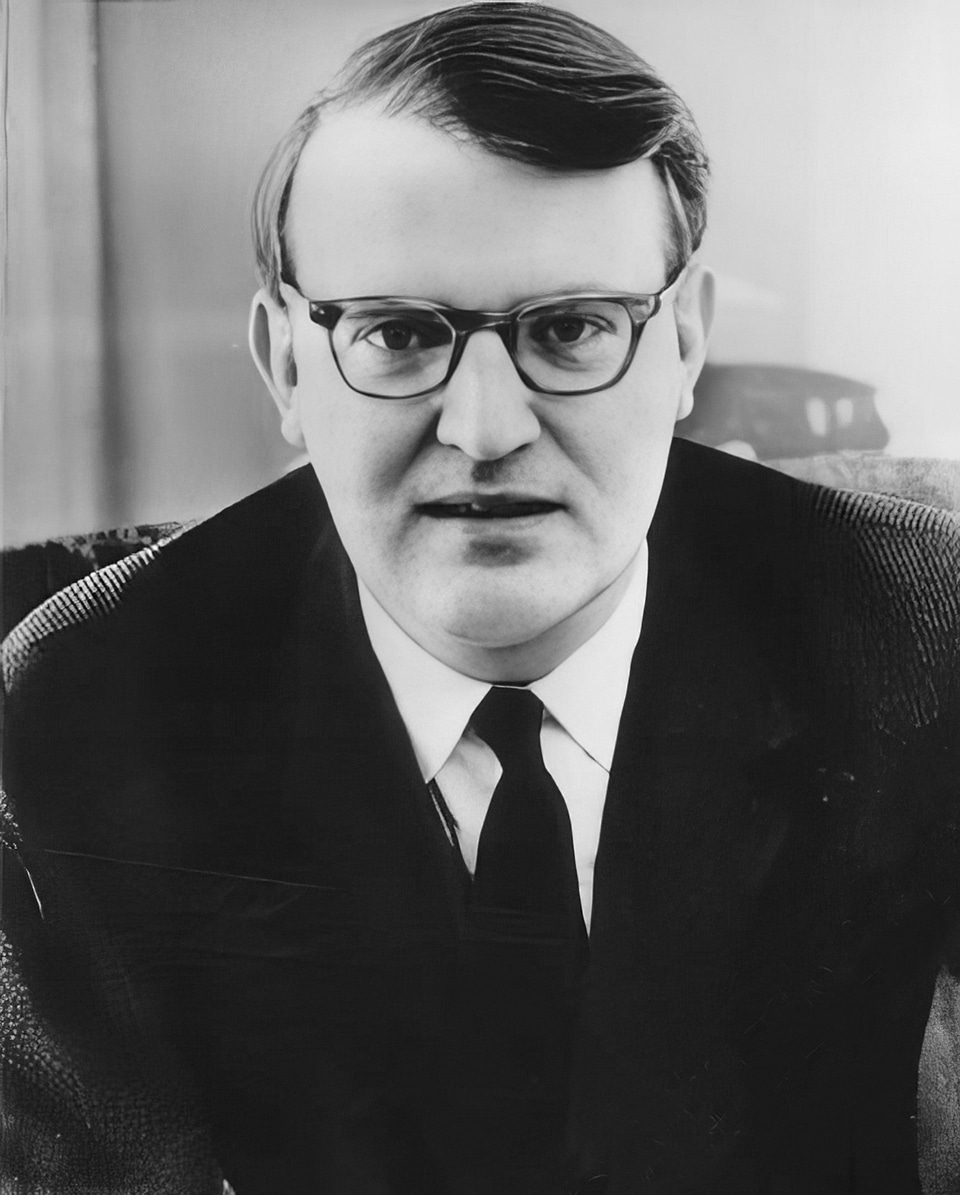RESOURCES
PEOPLE
William J. vanden Heuvel
1930-2021
Born into a working-class family in Rochester, New York, vanden Heuvel was the son of a Dutch immigrant father and a Belgian immigrant mother, Alberta. He attended public schools in New York before enrolling at Deep Springs College and later graduating from Cornell University, where he was a member of the Cornell Branch of the Telluride Association. At Cornell Law School, he became editor-in-chief of the Cornell Law Review, served as president of both the Young Democrats and the Debate Club, and was elected to the Tompkins County Board of Commissioners.
After being admitted to the New York Bar in 1952, vanden Heuvel joined the prominent law firm Donovan, Leisure, Newton & Irvine. An early protégé of Office of Strategic Services founder William J. Donovan, he served from 1953 to 1954 as Donovan’s executive assistant at the U.S. embassy in Bangkok, Thailand. In 1958, he was appointed Counsel to New York Governor W. Averell Harriman.
Vanden Heuvel’s public service deepened in 1962 when he became Special Assistant to U.S. Attorney General Robert F. Kennedy. In this role, he was central to the federal government’s efforts to address civil rights injustices—most notably in the crisis in Prince Edward County, Virginia.
Following the 1954 Brown v. Board of Education decision, Prince Edward County chose to close its public schools entirely from 1959 to 1964 rather than integrate. Vanden Heuvel played a key legal and organizational role in securing a federal court order to reopen the schools and helped launch the Prince Edward County Free School Association in 1963. This initiative, supported by the federal government and private philanthropy, created temporary schools to educate displaced students. His work expanded the practical enforcement of Brown v. Board and marked one of the Kennedy administration’s most significant civil rights interventions.
In 1964 he worked on Robert Kennedy’s U.S. Senate campaign and was a trusted advisor during Kennedy’s 1968 presidential run.
After his time with the Department of Justice, vanden Heuvel joined Stroock & Stroock & Lavan as a senior partner, focusing on international and corporate law. In the 1970s, as Chairman of the New York City Board of Correction, he spearheaded reforms and investigations into the city’s prison system, advocating for better conditions and oversight.
Under President Jimmy Carter, he was appointed as U.S. Ambassador to the European Office of the United Nations in Geneva (1977–1979), and later served as Deputy U.S. Permanent Representative to the United Nations in New York (1979–1981). In both posts, he played an active role in U.S. diplomacy during a complex period of Cold War tensions.
Vanden Heuvel founded the Franklin and Eleanor Roosevelt Institute and was instrumental in the creation of Four Freedoms Park on Roosevelt Island, honoring FDR’s global vision of human rights. A lifelong advocate for justice, civil liberties, and international cooperation, his influence spanned across legal, diplomatic, and educational realms. His daughter, Katrina vanden Heuvel, continues his legacy as a prominent journalist and commentator.
